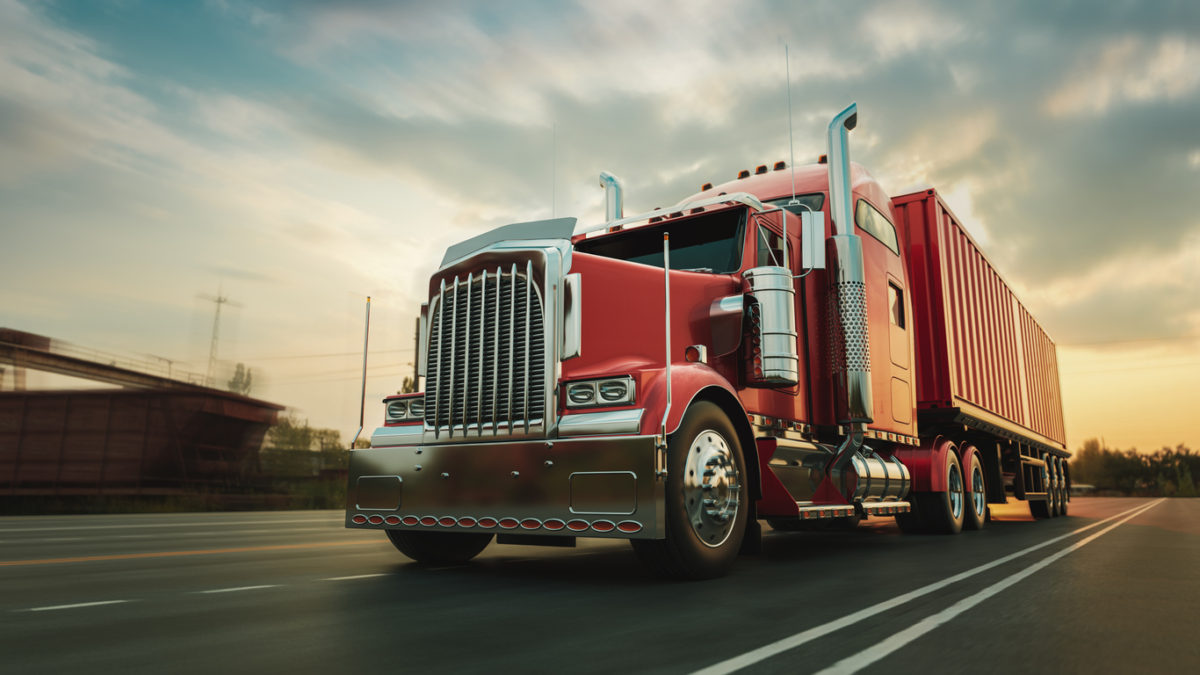The U.S. commercial trucking industry travels millions of miles each year, delivering cargo to every corner of the country. Thousands of trucks make up the U.S. fleet, and these vehicles represent a high environmental impact. Now, as the industry moves toward “green trucking”, how can fleet owners manage pollution in their own vehicles? There are many ways to reduce the carbon footprint in fleet operations. In this guide – the first of a two-part series — we will explore solutions, helping fleet owners to operate more efficiently and with less impact on the environment.
The Environmental Impact of Trucking
It should come as no surprise that commercial trucks – numbering about 1.5 million in operation on U.S. roadways — impact the environment in a big way. In fact, according to statistics compiled by the U.S. Environmental Protection Agency (EPA), commercial transportation is responsible for about 27% of the annual greenhouse gas emissions in the United States. The industry burns more than a billion gallons of oil each year, further contributing to negative environmental impacts. Technology has improved over the past two decades, resulting in the lowering of harmful emissions, and regulations have tightened restrictions on pollutants, trucking still has an outsized effect on atmospheric quality.
Why should fleet owners be concerned with reducing the impact of their vehicles on the environment? In simple terms, reducing environmental emissions slashes fuel costs. Fuel represents between 25 and 39% of operational expenses for fleets; reducing fuel use also lowers the associated expenses. Fuel management, therefore, is an important aspect of fleet operational best practices as well as fleet risk management.
Improving Efficiency, Lowering Emissions
In years past, freight haulers engaged in a practice called “deadheading”, or the situation that arises when a trucker drives an empty trailer to another location after delivering a cargo load. Not only is deadheading dangerous, but the practice also wastes resources. A single incident involving an empty truck and an on-road collision can result in fuel spills and environmental cleanup costs. While trucking pollution insurance is designed to protect against those risks, reducing travel of empty trailers is an even smarter solution. Operational efficiency is one of the keys to reducing greenhouse gas emissions; if an empty trailer is hauled between loads, this inefficiency produces more pollution for no benefit. It also drives up costs. According to one industry estimate, some freight carriers may cover as much as 55 percent of annual mileage with empty trailers.
To counter the practice of deadheading, fleet management systems have been developed to help facilitate a smooth and efficient operation. These systems can be integrated with vehicle telematics or other real-time tracking sensors, giving fleet managers full control over routes, loads, and scheduling. By implementing these systems, trucking companies can reduce waste while improving efficiency. In fact, such systems can all but eliminate deadheading from operations.
Partial loads are also sources of waste, contributing to unnecessary emissions and fuel expenses. So-called “load boards” are a popular solution and have been adopted across the transportation sector. These portals work in two ways: by allowing shippers and freight brokers to find carriers for loads and to give carriers better control over loads to ensure that only full loads are being hauled.
In part two of our guide to reducing pollution, we will explore even more ways for trucking companies to take charge of emissions. These solutions improve efficiency, cut waste, and keep fuel expenses in check.
About Western Truck Insurance Services
Western Truck Insurance Services is a commercial truck insurance agency with roots dating back to 1954. We have evolved into a highly respected, professionally managed, truck and transportation insurance brokerage. The hallmark of our organization is our desire to provide unparalleled service. We go way beyond what you expect to receive from an insurance brokerage. Equipped with state of the art automation, Western Truck Insurance can provide you with lightning fast truck insurance quotes, customer service, Insurance certificates, and coverage changes. Contact us today at (800) 937-8785 to learn more!

